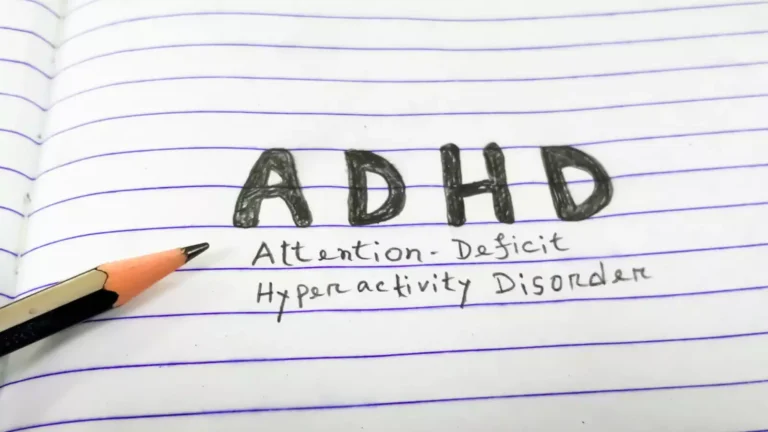
Stress and anxiety are common mental health concerns that many people face daily. With the increasing pace of modern life, these conditions can quickly become overwhelming, affecting both physical and mental well-being. As stress and anxiety continue to rise globally, the need for effective management techniques has never been greater. At Mysterious Minds Institute, we recognize the impact of these challenges on individuals and offer various approaches to help manage and reduce these conditions.
Understanding Stress and Anxiety
Stress is a natural response to demanding situations, but when it becomes chronic, it can have negative effects on both the body and mind. Anxiety, often associated with excessive worry, nervousness, or fear, can interfere with daily activities and overall well-being. Both conditions can arise due to work pressures, life changes, personal struggles, or health concerns, and may lead to physical symptoms such as headaches, muscle tension, fatigue, and sleep disturbances.
The effects of chronic stress and anxiety are far-reaching. If left unmanaged, they can lead to more severe mental health issues, including depression, burnout, and panic attacks. Fortunately, managing stress and anxiety is possible through a combination of techniques that promote mental resilience, emotional balance, and overall wellness.
Key Strategies for Stress and Anxiety Management
- Mindfulness and Meditation
Mindfulness is the practice of staying present in the moment without judgment, which can help calm the mind and reduce stress. Regular mindfulness exercises can improve emotional regulation and reduce the physiological effects of anxiety. Meditation, a form of mindfulness, has been proven to decrease stress levels, enhance concentration, and improve sleep quality. By focusing on breathing or guided visualizations, individuals can activate their body’s relaxation response, helping to manage the physical symptoms of stress.
Research Insights: Studies show that mindfulness-based stress reduction (MBSR) can significantly lower cortisol (the stress hormone) levels and enhance overall emotional well-being
- Cognitive Behavioral Therapy (CBT)
Cognitive Behavioral Therapy (CBT) is an evidence-based therapeutic approach that helps individuals identify negative thought patterns and replace them with healthier, more balanced perspectives. CBT is highly effective in managing anxiety by addressing the root causes of stress and teaching practical coping strategies. By recognizing and challenging distorted thinking, individuals can reduce the intensity and frequency of anxiety symptoms and improve their ability to handle stressors more effectively.
Evidence-Based Benefits: Research has consistently shown that CBT is one of the most effective forms of treatment for anxiety disorders, with studies indicating significant improvement in anxiety symptoms following CBT interventions
- Physical Activity and Exercise
Physical activity is not only good for physical health but also plays a crucial role in managing stress and anxiety. Exercise releases endorphins, the body’s natural mood boosters, which can alleviate feelings of stress and improve overall mental health. Regular physical activity can also improve sleep quality, reduce muscle tension, and enhance cognitive function, all of which are beneficial in managing anxiety.
Scientific Backing: Numerous studies have demonstrated that even moderate exercise, such as walking or yoga, can significantly reduce symptoms of anxiety and stress
- Breathing Techniques and Relaxation Exercises
Deep breathing exercises, such as diaphragmatic breathing, can activate the body’s parasympathetic nervous system, which promotes relaxation. This counteracts the body’s fight-or-flight response triggered by stress and anxiety. Techniques such as the 4-7-8 breathing method, where you inhale for 4 seconds, hold your breath for 7 seconds, and exhale for 8 seconds, can quickly calm your mind and reduce feelings of anxiety.
Why It Works: By focusing on slow, controlled breathing, individuals reduce heart rate and lower stress hormone levels, leading to a calmer state of mind
- Social Support and Connection
One of the most effective ways to manage stress and anxiety is through social support. Talking to friends, family, or a counselor can provide a sense of relief and reduce feelings of isolation. Building a strong support network can help you cope with challenges, improve problem-solving skills, and provide emotional validation during stressful times. It’s important to prioritize relationships and foster meaningful connections with others to build emotional resilience.
Psychological Benefits: Social connection has been shown to improve mental health by providing emotional support, reducing feelings of loneliness, and promoting positive coping strategies
- Sleep Hygiene
A lack of quality sleep can exacerbate stress and anxiety, creating a vicious cycle. Proper sleep hygiene is essential for managing mental health. Establishing a consistent bedtime routine, limiting screen time before bed, and creating a calming environment can all improve sleep quality and reduce stress.
Sleep and Anxiety: Studies show that sleep deprivation can heighten anxiety levels and reduce the brain’s ability to cope with stress. Ensuring a good night’s rest supports cognitive function and emotional regulation
- Nutrition and Hydration
What you eat can influence your mood and stress levels. Diets rich in processed foods and sugar can contribute to feelings of anxiety, while nutrient-dense foods, including fruits, vegetables, and omega-3 fatty acids, can promote mental clarity and emotional balance. Hydration is equally important, as dehydration can increase irritability and stress.
Scientific Findings: A balanced diet rich in whole foods, particularly those with antioxidants and omega-3 fatty acids, has been shown to support mental health by reducing inflammation and promoting brain health
Building Mental Resilience for Long-Term Success
In addition to the immediate strategies above, building mental resilience is essential for long-term stress and anxiety management. Mental resilience refers to an individual’s ability to bounce back from adversity, cope with challenges, and thrive under pressure. Resilience can be developed over time through consistent practice of coping strategies, maintaining a positive mindset, and seeking help when needed.
Key Resilience Practices:
- Embrace a growth mindset: Focus on learning from challenges rather than being overwhelmed by them.
- Practice gratitude: Regularly acknowledging the positive aspects of your life can shift your focus away from stress.
- Set realistic goals: Break down large tasks into smaller, manageable steps to reduce feelings of overwhelm.
Conclusion: Take Control of Your Stress and Anxiety
Managing stress and anxiety is not about eliminating them entirely but rather developing the tools and strategies to cope with them effectively. Through mindfulness, therapy, physical activity, and social connection, individuals can build resilience and lead healthier, more balanced lives.
At Mysterious Minds Institute, we offer comprehensive support for managing stress and anxiety through tailored treatment plans that include therapy, lifestyle coaching, and cutting-edge treatments. Our experts are here to guide you on your journey toward mental well-being and help you build lasting emotional resilience.
If you’re struggling with stress or anxiety, don’t hesitate to reach out to our team. We’re here to help you reclaim your mental peace and achieve a healthier, more balanced life.



